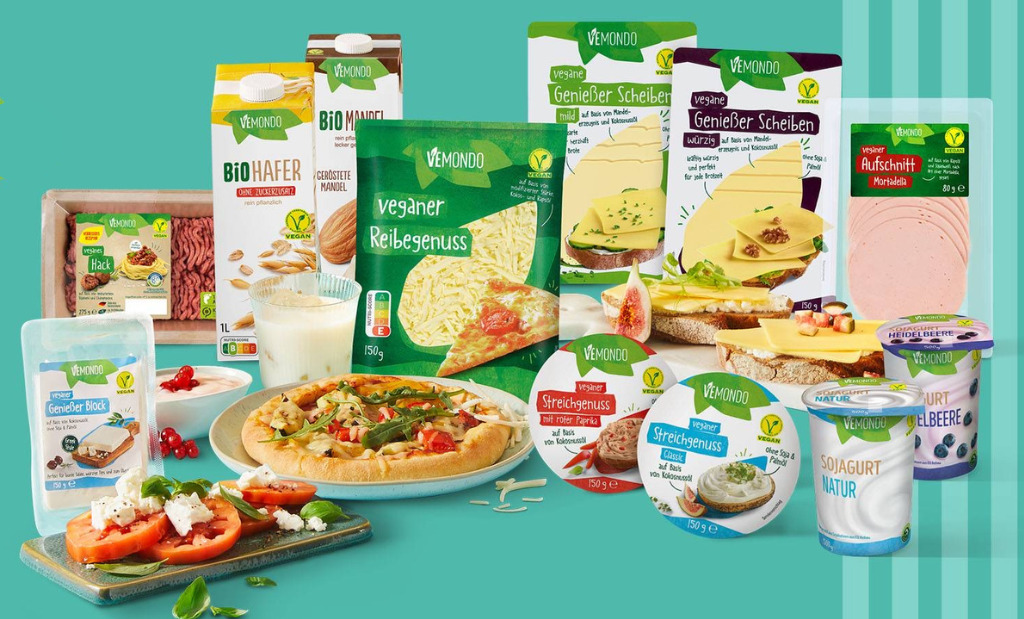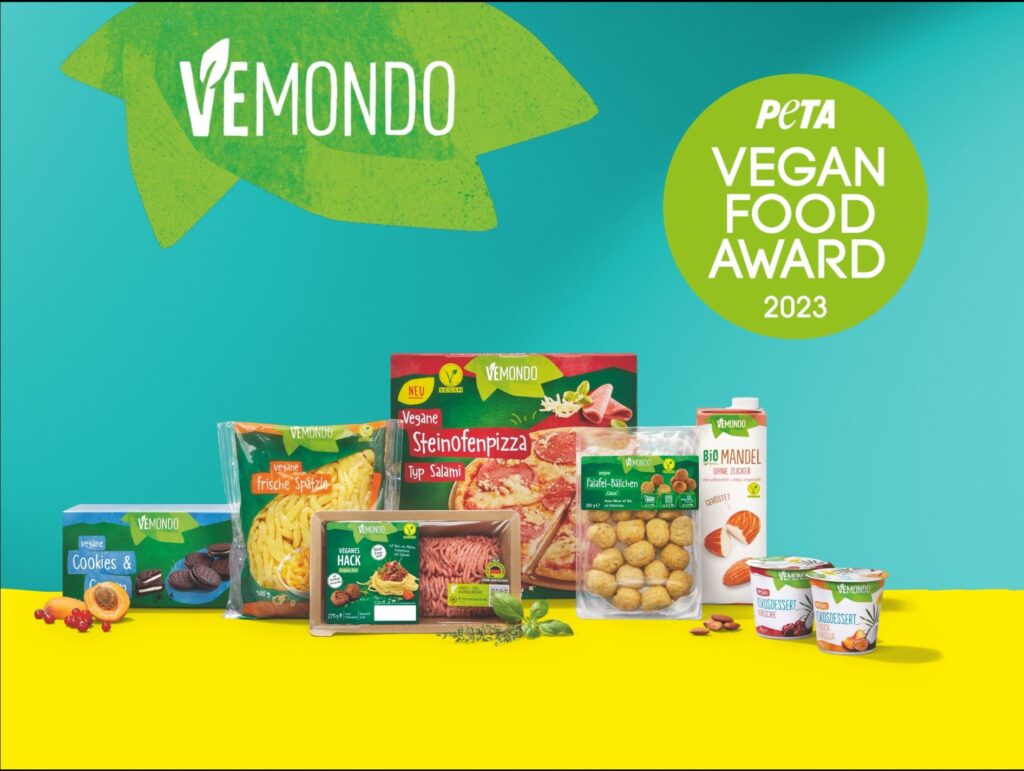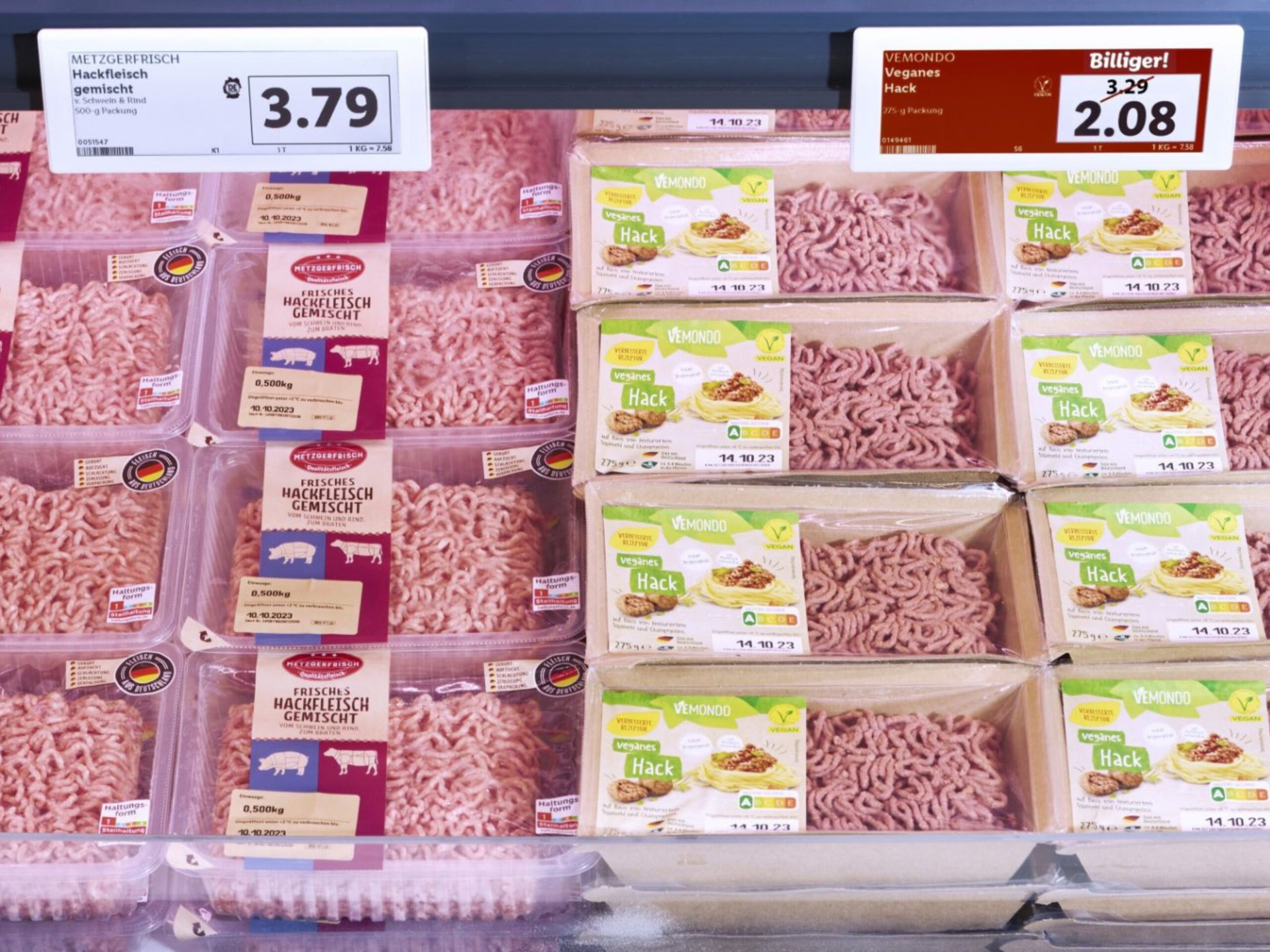Plant-Based Price Parity: Lidl Germany’s Own-Label Vegan Alternatives Will Now Cost the Same as Meat & Dairy
5 Mins Read
German retailer Lidl has announced that it will be introducing price parity for the majority of its plant-based alternatives to animal-derived foods via its own-label brand Vemondo. The grocer will also place these vegan products directly next to their conventional counterparts across all its stores in Germany.
Lidl introduced its Vemondo range in 2020, which now boasts over 100 products (the retailer stocks a total of 650 vegan items across seasons). Now, most of the products under this label – which include plant-based milk, yoghurt, ice cream, cheese, meat products and ready meals – will be priced on par with their animal-derived counterparts.
The retailer says it wants to “bring equality on the plate”, explaining that widespread “conscious and sustainable consumption” is only possible if these foods are “affordable and more easily accessible for everyone”.
Plant-based price parity to match market trends

It comes on the back of research last month revealing that 43% of consumers in Germany would buy more vegan products if they were cheaper – not only is it Europe’s leading plant-based market, it has the second highest per-capita spend on plant-based foods. Meanwhile, 29% would purchase more if there were a higher number of plant-based options to choose from.
The survey was carried out by BVLH, a federal association of German retailers, which found that 43% of the country’s population identifies as flexitarian, while 9% are vegetarian and 3% are vegan. Similar research has found that meat consumption has dropped to a record low in the country, which ranks top when it comes to plant-based meat sales in Europe.
Attitudes towards plant-based dairy are along similar lines. The country is the leading European market for vegan milk, cheese and yoghurt, with sales of the former growing by 20% between 2020-22. Additionally, research by the University of Hohenheim has revealed that Germany has the greatest potential for alt-milk in the continent, with purchases already growing by 62% between 2020-22.
Lidl’s move to introduce price parity will be a win for German MPs Tim Klüssendorf and Bruno Hönel from the Social Democratic Party and Green Party, respectively. In August, the two politicians proposed a change in the country’s tax laws to reduce the VAT on plant-based milk to better reflect consumer needs. Currently, alt-milk carries a 19% levy, compared to 7% for traditional dairy.
Germans spent an average of €6.60 on alt-milk last year, with 28% consuming it once a week. This is why Lidl’s decision to reduce their prices to match them with cow’s milk is such an important step. “By adjusting the price of our Vemondo products, we would like to increasingly invite customers to try out the plant-based alternatives – without the price being the decisive criterion,” said Lidl Germany’s chief buyer Christoph Graf.
“Price is a key lever in nudging people to transition to a more plant-based diet, particularly in times when household budgets are being squeezed,” Jasmijn de Boo, CEO of alt-protein non-profit ProVeg International, said in a statement. “This is also the first time we are seeing a long-term, permanent pricing measure by a large retailer to promote plant-based nutrition and we hope other retailers will follow Lidl’s example and make similar adjustments to their pricing.”
Positioning vegan products in the meat and dairy aisles

Lidl isn’t just aligning its vegan product prices with animal-based food: it’s now putting them together. It will place plant-based products in the traditional aisles of all 3,250 of its stores – so plant-based meat will go alongside conventional meat, while plant-based milk will be positioned next to cow’s milk, for example.
It follows a trial by the retailer in June, where it placed its four bestselling meat analogues in the meat aisle for increased visibility. It’s a strategy that has been known to be successful in creating more awareness and increasing consumer adoption of these products across different countries.
A 2020 trial by US retailer Kroger and the Plant Based Foods Association (PBFA) showed that when sold in the meat aisle, plant-based meat sales rose by 23%, with one consumer explaining that their first thought is that these products will be in the meat section, while another said this makes buying vegan a lot easier.
In 2021, a UK-wide report by the Institute of Grocery Distribution (IGD) found that 57% of respondents strongly agreed that moving plant-based products into the meat aisle would make it easier for them to follow healthier and more sustainable diets. Although it could be important to have a segregated bay within the meat aisle, as opposed to placing products right next to the meat, Asda found the latter saw a 30% sales decline versus the former.
It’s important to make these changes permanent, as Lidl is doing. IGD reports how, in one European study, meatless spreads and sausages were moved alongside their conventional counterparts (as well as remaining in their original positions). While sales increased initially, they came back down once the trial had ended.
Additionally, a 2021 poll by Attest found that a fifth of US and UK consumers never visited a dedicated vegan aisle, with 28% doing so rarely. Meanwhile, 16% of non-vegans said they’d never buy from these sections.
Replacing meat and dairy with plant-based alternatives

Lidl – which was the first retailer to introduce the V-Label on price indicators on shelves in Germany – claims that it is the first German supermarket to disclose data on the proportion of animal to plant-based protein in its product range. The grocer has found that vegan to animal protein has a ratio of 11% to 89%, while for dairy, this changes to 6% to 94%, respectively.
The retailer says it’s the first to set concrete goals around these foods. It will endeavour to increase the proportion of plant-based protein sources in its German stores by 20% and alt-dairy by 10% by 2030. The company adds that it will advocate for a cross-industry methodology to calculate protein ratios. The move comes months after Lidl announced it will be cutting back its meat offerings in favour of more plant-based food as there is “no second planet”.
“Only if we enable our customers to make ever more conscious and sustainable purchasing decisions and fair choices can we help shape the transformation to sustainable nutrition,” said Graf. “For us, this also includes remaining in active dialogue with our partners in German agriculture and continually developing our animal range in terms of transparency and husbandry methods.”




